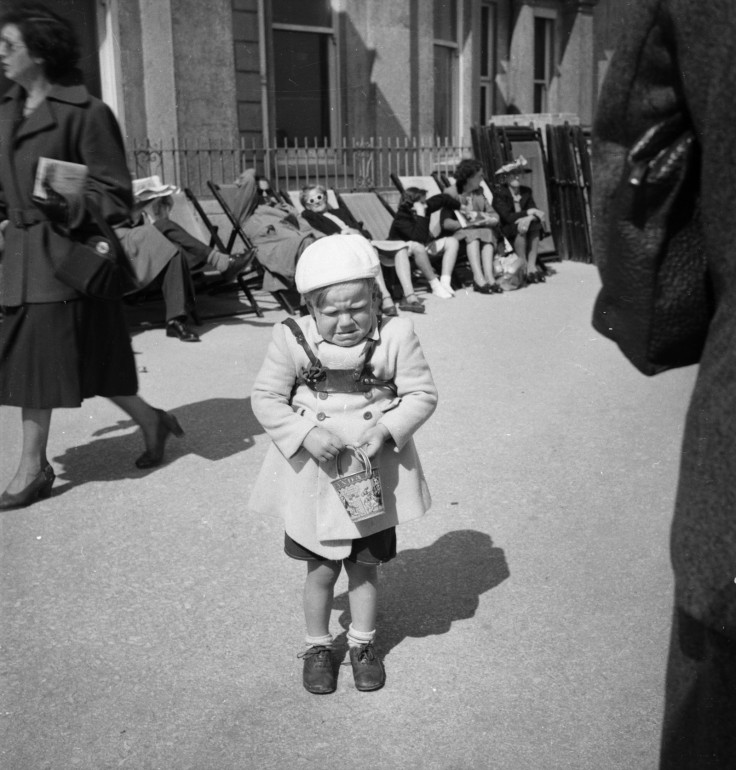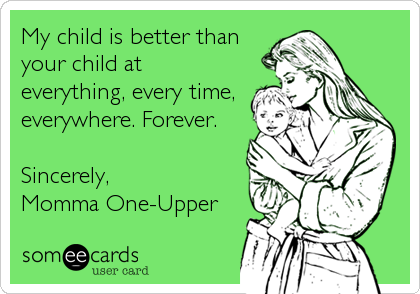How to stop your child becoming a narcissist: Don't tell them they're special

Parents be warned – telling your child they are more special than other children will lead them to become narcissists, a study has found.
Researchers were looking to find out the origins of narcissism by surveying parents and their children over 18 months to try to find out what factors led children to develop an inflated view of themselves.
Findings showed that children of parents who "overvalued" their offspring – by telling them they were better than other children, or that they deserved something extra in life, for example – ended up scoring highly on narcissism tests.
Lead author Eddie Brummelman, a postdoctoral researcher at the University of Amsterdam, told IBTimes UK: "Narcissistic children tend to be very reactive – when they are praised they feel on top of the world, but when they're criticised they feel bad about themselves and are ashamed.
"They are more aggressive than other children, but only when they are criticised - when they feel their egos have been put on the line, when they feel other people outshine them or when other people criticise them."
To study where this personality disorder comes from, the researchers looked at 565 children who were seven to 11 years old when the study began.
Publishing their findings in the Proceedings of the National Academy of Sciences, the researchers asked parents how much they agreed with statements, such as "My child is a great example for other children to follow". Both parents and children also reported how much emotional warmth they showed with statements like "I let my child know I love him/her". Children were measured for levels of narcissism and self-esteem.
Brummelman noted that parents sometimes overvalue their child, thinking it will help raise their self-esteem. But this was not the case, the team found: "You might think parents who overvalue might also be very warm and affectionate, but there was no correlation. Parents who overvalue are not necessarily more affectionate, but what they do is praise children more frequently than others and they overestimate their children's qualities."
Parental warmth, but not overvaluation, was linked with children with high self-esteem – rather than seeing themselves as more special than other children, they tended to say they were happy with themselves and liked the kind of person they were.
"People with high self-esteem think they're as good as others, whereas narcissists think they're better than others," said study co-author Brad Bushman, from the Ohio State University. "Overvaluation predicted narcissism, not self-esteem, whereas warmth predicted self-esteem, not narcissism."
Findings showed overvaluation was also connected to narcissism even after taking into account the levels or narcissism in the parents – showing it is not just genes influencing personality.
In a previous study, Brummelman and Bushman had found to what extent parents of narcissistic children overvalue their child. Parents were asked about topics their child knew about – including real ones, like Neil Armstrong, and completely fabricated ones.
"Overvaluing parents claimed their children knew about topics that don't exist," Brummelman said. "Parents who overvalue praise more often, they overestimate them and they over-claim their abilities. It's also about feeding the social image to others about their child's abilities."
Bushman, a father of three, said his work on narcissism in children has made him rethink how he treats his children: "I used to think my children should be treated like they were extra-special. I'm careful not to do that now. It is important to express warmth to your children because that may promote self-esteem, but overvaluing them may promote higher narcissism."
Brummelman said the next step is to see if teaching parents to convey more affection, without telling the child they are special, will raise self-esteem without raising narcissism. "If we teach parents to let go of these overvaulting practices, and replace with warm and affection, will it help children be healthier self-views."
© Copyright IBTimes 2025. All rights reserved.























